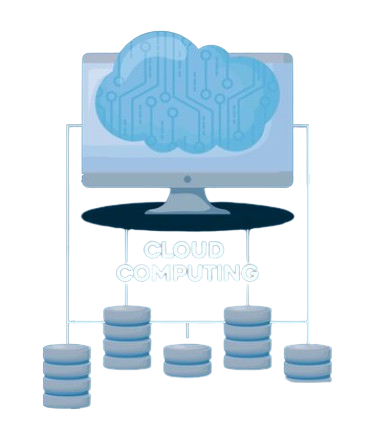Cloud Integration will continue to be an essential strategy for businesses looking to harness the full potential of Big Data. By leveraging the scalability, flexibility, and cost-efficiency of cloud platforms, organizations can unlock powerful insights, streamline their operations, and position themselves for future growth.
In today’s data-driven world, businesses are increasingly relying on vast amounts of information to make informed decisions, improve customer experiences, and drive innovation. However, the challenge lies in how to efficiently manage, store, and analyze this massive data influx. The answer? Cloud Integration with Big Data.
As more organizations embrace digital transformation, the integration of cloud technologies with Big Data platforms is becoming a game-changer. This powerful combination enables businesses to scale operations efficiently and adapt to growing data demands. With cloud-based Big Data solutions, companies can process data in real time, unlocking critical insights faster. This seamless approach eliminates the limitations of traditional infrastructure, driving smarter decision-making. By leveraging Cloud Integration, businesses are finding new ways to optimize their operations and unlock opportunities that were previously unattainable.
Why Cloud Integration is Essential for Big Data
1. Scalability and Flexibility
Big Data, by its nature, involves handling enormous datasets that often exceed the capacity of on-premise infrastructure. One of the most significant advantages of Cloud Integration is the ability to scale seamlessly. Whether your data needs suddenly spike due to increased demand, or you’re looking to process historical data, cloud platforms offer the flexibility to adjust resources as needed, without the need for costly hardware investments.
With Cloud Integration, businesses can scale their storage, computing power, and bandwidth on demand. This ensures that whether a business is handling a few terabytes or petabytes of data, it has the infrastructure to handle the load efficiently.
2. Cost-Effective Solutions
Traditional data centers come with high costs—ranging from hardware maintenance to energy consumption and dedicated IT teams. However, by integrating Big Data with cloud services, businesses can significantly reduce these operational costs. Cloud Integration operates on a pay-as-you-go model, where businesses only pay for the resources they use. This makes it an attractive option for organizations of all sizes, particularly startups and mid-sized companies that may not have the budget for extensive on-premise infrastructure.
Moreover, with cloud providers continuously innovating and reducing costs through economies of scale, businesses benefit from the latest technology at a fraction of the cost of managing their data centers.
3. Real-Time Data Processing
Speed is crucial in today’s fast-paced business environment. With the rise of IoT devices, social media, and connected systems, businesses are dealing with streams of data that need to be processed in real time to extract actionable insights. Cloud Integration enables real-time data analytics by providing the necessary computing power and infrastructure to process large datasets instantly.

For example, retail businesses can leverage real-time analytics to monitor customer behavior, optimize inventory, and offer personalized recommendations. Similarly, financial institutions can use real-time data to detect fraud or assess market trends. Without Cloud Integration, managing and analyzing such data at scale would be nearly impossible.
4. Enhanced Collaboration and Accessibility
One of the core advantages of Cloud Integration is the ability to make data accessible from anywhere in the world. This fosters better collaboration across departments, geographies, and even with external partners. Cloud platforms allow authorized users to access, manipulate, and analyze data without being restricted to a single location or device.
This enhanced accessibility is particularly beneficial for global enterprises, as it ensures that teams can work on the same data sets simultaneously, driving innovation and productivity. Moreover, by ensuring that data is stored securely in the cloud, businesses reduce the risk of data loss due to hardware failures or other disruptions.
Key Benefits of Cloud Integration with Big Data
-
Improved Agility:
Businesses can quickly adapt to changes in data needs, whether that involves scaling up for a big project or scaling down during quieter periods. -
Advanced Analytics:
Cloud platforms offer robust analytics tools that can handle complex queries, predictive models, and machine learning algorithms, empowering businesses to turn raw data into strategic insights. -
Data Security and Compliance:
Leading cloud providers offer comprehensive security features such as encryption, multi-factor authentication, and compliance with global data regulations, ensuring that businesses meet their security and privacy requirements. -
Data Backup and Recovery:
Cloud Integration provides automated backups and disaster recovery options, protecting critical business data from accidental loss or cyber-attacks.
Challenges of Cloud Integration
While Cloud Integration offers numerous benefits, businesses should be aware of potential challenges, including:
-
Data Migration:
Transitioning large datasets from on-premise systems to the cloud can be time-consuming and costly. Proper planning and choosing the right cloud provider are essential for a smooth migration. -
Integration Complexity:
Integrating cloud services with existing Big Data tools may require custom configurations and API management, especially when dealing with legacy systems. -
Data Security:
While cloud providers offer robust security features, businesses must also implement best practices like encryption, secure access controls, and regular audits to ensure the safety of their data.
Conclusion
In 2024 and beyond, Cloud Integration will continue to be an essential strategy for businesses looking to harness the full potential of Big Data. By leveraging the scalability, flexibility, and cost-efficiency of cloud platforms, organizations can unlock powerful insights, streamline their operations, and position themselves for future growth.
Tanbits offers big data services that help businesses maximize their cloud capabilities, ensuring efficient and scalable solutions.
As businesses continue to generate and collect more data than ever before, Cloud Integration will be a cornerstone of successful digital transformation efforts. Those who embrace this technology will be better equipped to meet the demands of an increasingly data-centric world, staying ahead of the competition and driving innovation across their industries.
BACK










